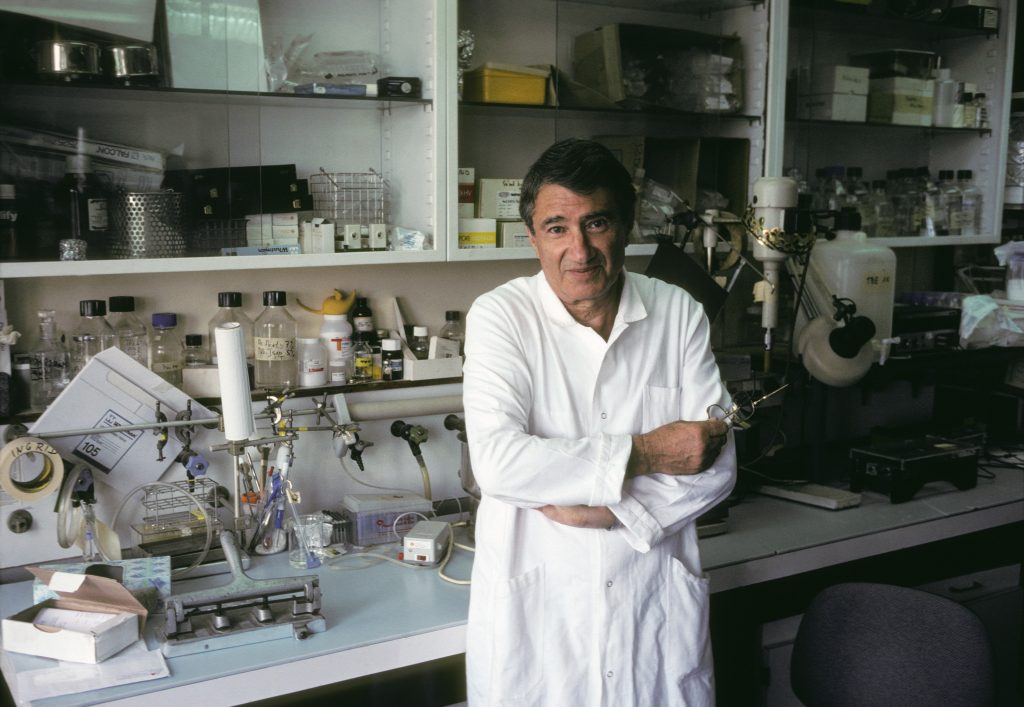ROME (AP) - French scientist Etienne-Emile Baulieu, renowned as the inventor of the abortion pill, passed away on Friday at the age of 98 in his home in Paris, according to a statement from his institute.
Baulieu was both a doctor and a researcher, celebrated globally for his contributions to steroid hormone research, which held significant scientific, medical, and social implications. His research was characterized by his dedication to scientific progress, a commitment to women's rights, and a desire to improve the quality of life for individuals.
Born as Etienne Blum in Strasbourg on December 12, 1926, Baulieu adopted the name Émile Baulieu when he joined the French Resistance at the young age of 15, in defiance of the Nazi occupation. An endocrinologist, Baulieu earned a doctorate in medicine in 1955 and a doctorate in science in 1963. In that same year, he established a groundbreaking research unit dedicated to hormone studies at INSERM, the French institute for health and medical research, where he remained the head until 1997.
Baulieu is particularly known for the development of RU 486 in 1982, commonly referred to as the "abortion pill." This revolutionary medication transformed the lives of millions of women worldwide by providing a safe and voluntary means of medical termination of pregnancy, both physically and psychologically. The Institut Baulieu emphasized that this method is less invasive and less aggressive compared to surgical abortion techniques. Despite its benefits, Baulieu faced significant backlash and threats from opponents of abortion rights following his discovery.
The institute noted ongoing debates surrounding access to this method, particularly highlighting that it remains banned in some countries and faces legal challenges in the United States, where it is the most commonly used method for abortion.
Beyond his work on reproductive health, Baulieu's research into dehydroepiandrosterone (DHEA), a hormone linked to anti-aging, led him to investigate neurosteroids, which are steroids of the nervous system. Additionally, he developed an innovative treatment for depression, with clinical trials for this treatment actively taking place in various university hospitals.
In 2008, Baulieu founded the Institut Baulieu to further research into neurodegenerative diseases, such as Alzheimer’s disease, focusing on understanding, preventing, and treating these conditions. Throughout his illustrious career, Baulieu received several prestigious accolades, including the grand crosses of the Légion d’honneur and the Ordre national du Mérite. He was elected to the French Academy of Sciences in 1982, eventually chairing the institution in 2003 and 2004.
Furthermore, he served on the national advisory committee on life sciences and health from 1996 to 2002 and was recognized with numerous awards both in France and internationally.
French President Emmanuel Macron paid tribute to Baulieu, referring to him as “a beacon of courage” and a progressive thinker who empowered women in their quest for freedom. Macron noted, “Few French people have changed the world to such an extent.”
Following the death of his first wife, Yolande Compagnon, Baulieu remarried to Simone Harari Baulieu. He is survived by three children, eight grandchildren, and nine great-grandchildren, as reported by his institute.












